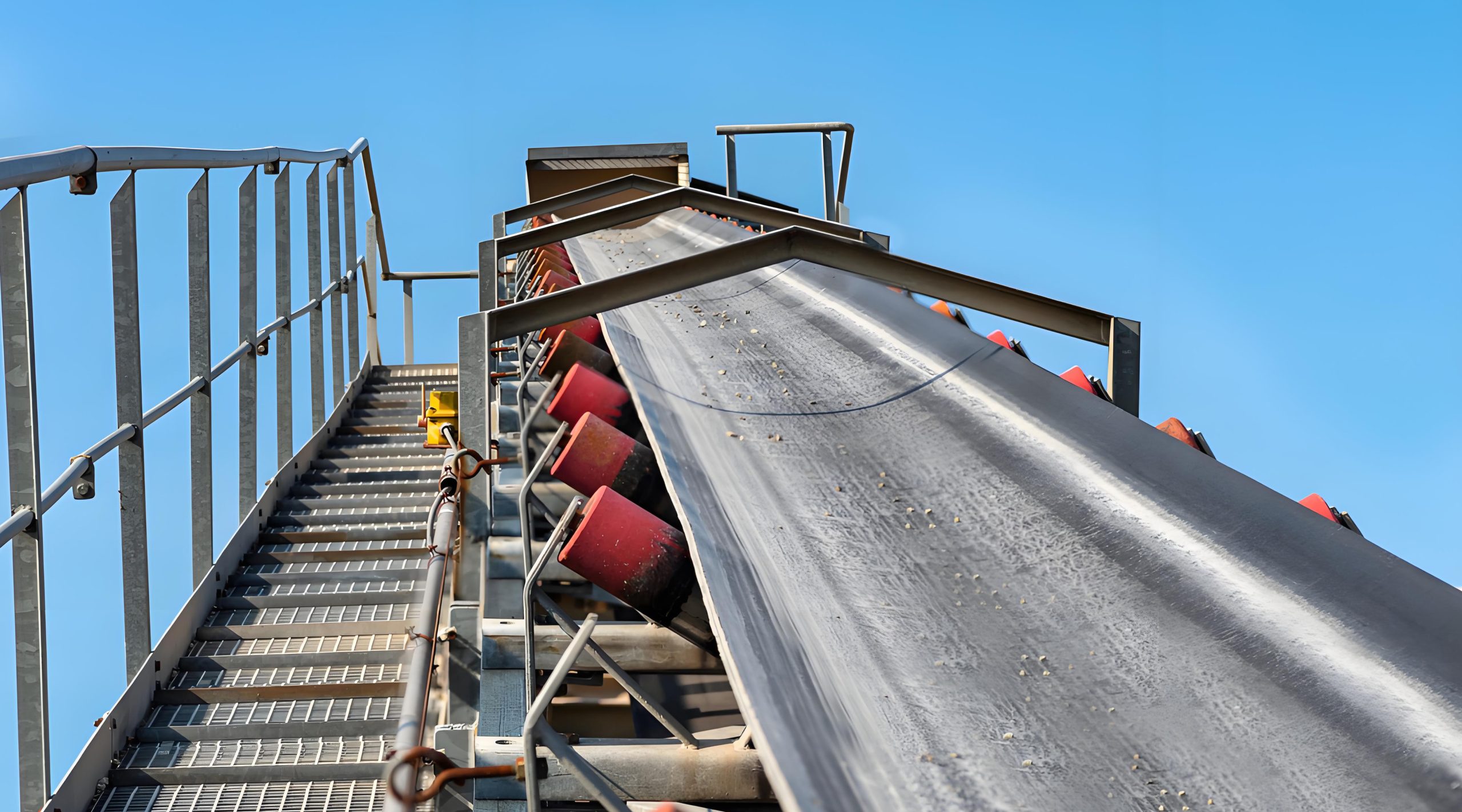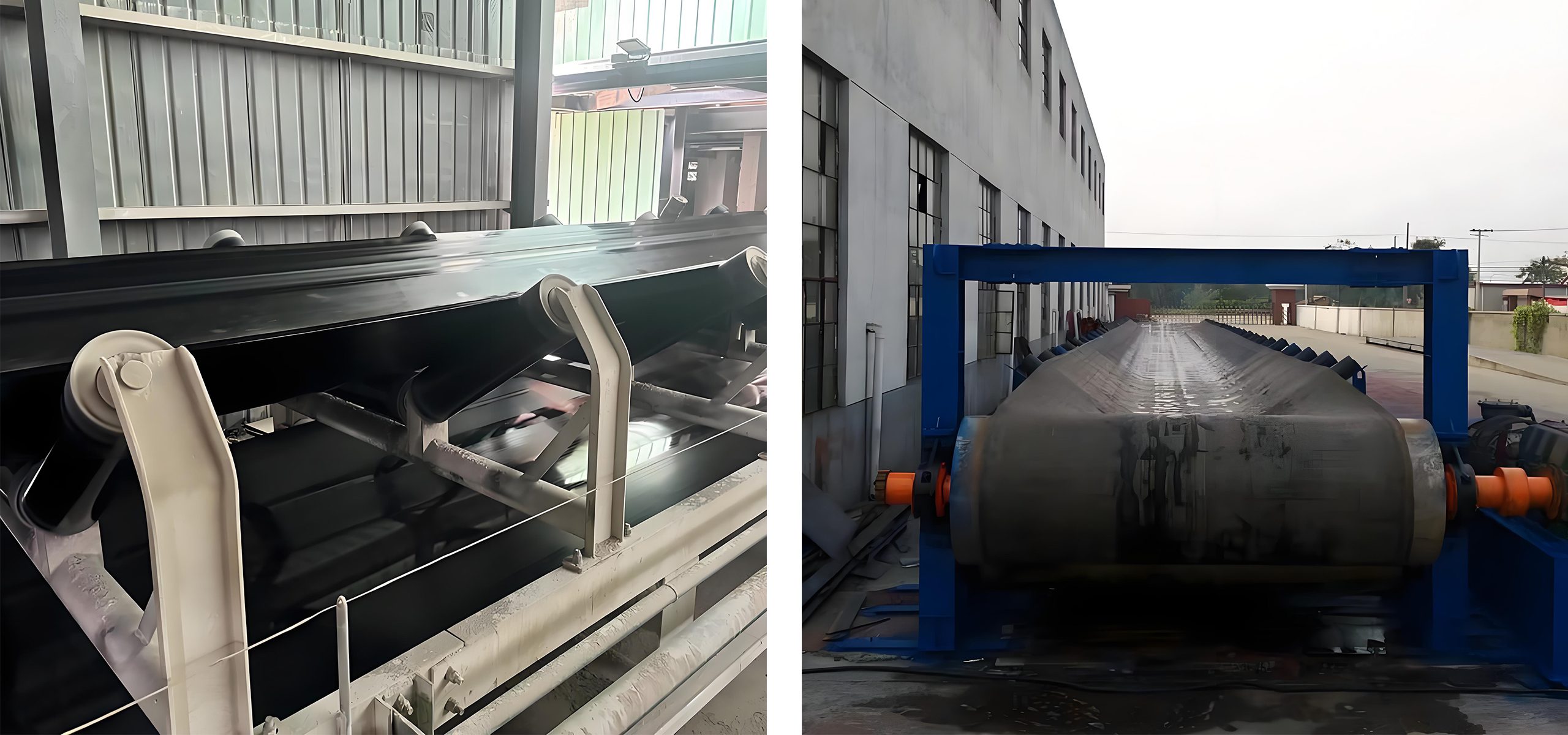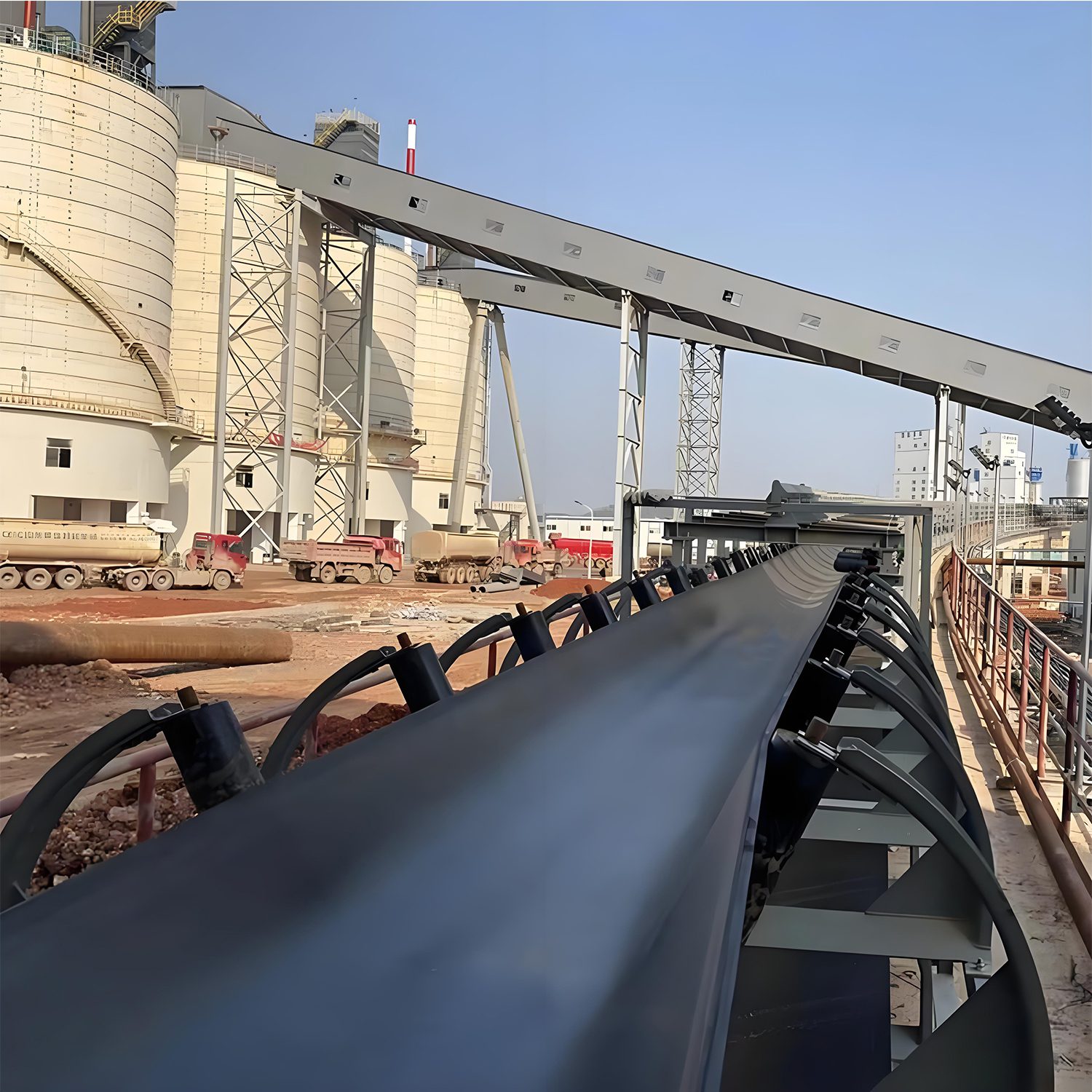Highlights of a Belt Conveyor
Belt conveyors have strong conveying capacity, long conveying distance, simple structure, easy maintenance, and can easily realize program control and automatic operation. Utilize the continuous or intermittent movement of the conveyor belt to convey items under 100KG or powdery or granular items. Belt conveyor has high and stable running speed, low noise, and can convey uphill and downhill.

The belt conveyor moves according to the principle of friction transmission. It is suitable for conveying powdery, granular, small-block low-abrasive materials and bagged materials that are easy to dig out, such as coal, gravel, sand, cement, fertilizer, grain, etc.

The belt conveyor operates effectively in ambient temperatures ranging from -20℃ to +40℃, with the conveyed material's temperature not exceeding 60℃. Users can determine its length and assembly form based on their specific requirements. The transmission can adopt an electric roller or a drive device with a drive frame.

The belt conveyor is a friction-driven, continuous material conveying machine. It mainly consists of a frame, conveyor belt, rollers, tensioning device, and transmission device. The belt conveyor can transport materials from the initial feeding point to the final unloading point along a specific conveying line. It can convey both broken materials and finished items. In addition to pure material conveying, the belt conveyor also meets the requirements of various industrial processes. This capability allows it to form a rhythmic flow operation transportation line.

Scope of application
Belt conveyors transport materials both horizontally and inclined. They are convenient to use and have widespread applications in various modern industrial enterprises. These include underground mine tunnels, surface transportation systems, open-pit mining sites, and mineral processing plants. Depending on the transportation process requirements, operators can use a single unit for transport. Alternatively, they can combine multiple units with other transportation equipment. This flexibility allows them to form horizontal or inclined transportation systems. These systems meet the needs of different production line layouts.

Transport capacity parameters
| Belt width
mm |
Belt speed (m/s) | |||||||||
| 0.80 | 1.00 | 1.25 | 1.60 | 2.00 | 2.50 | 3.15 | 4.00 | 5.00 | 6.50 | |
| Conveying capacity (t/h) | ||||||||||
| 500 | 69 | 87 | 108 | 139 | 174 | 217 | ||||
| 650 | 127 | 159 | 198 | 254 | 318 | 397 | ||||
| 800 | 198 | 248 | 310 | 397 | 496 | 620 | 781 | |||
| 1000 | 324 | 405 | 507 | 649 | 811 | 1014 | 1278 | 1622 | ||
| 1200 | 593 | 742 | 951 | 1188 | 1486 | 1872 | 2377 | 2971 | ||
| 1400 | 825 | 1032 | 1321 | 1652 | 2065 | 2602 | 3304 | 4130 | ||
| 1600 | 2188 | 2733 | 3440 | 4373 | 5466 | |||||
| 1800 | 2795 | 3494 | 4403 | 5591 | 6989 | 9083 | ||||
| 2000 | 3470 | 4338 | 5466 | 6941 | 8676 | 11277 | ||||
| 2200 | 6843 | 8690 | 10863 | 14120 | ||||||
| 2400 | 8289 | 10526 | 13158 | 17104 | ||||||
Appearance





